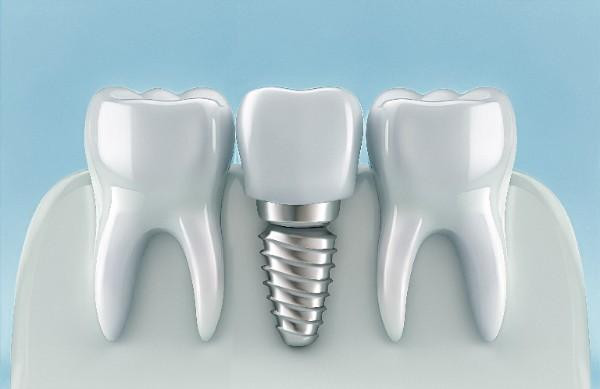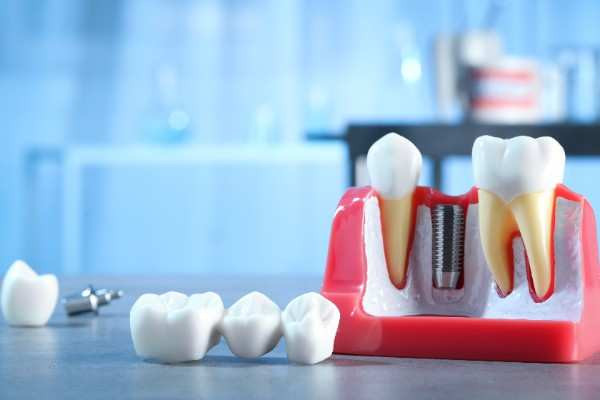Missing teeth can impact more than your appearance; they can affect how you chew, speak, and even cause gradual bone loss in your jaw. These issues can lead to changes in facial structure and overall oral health. Fortunately, with today’s dental innovations, dental implants offer a durable, natural-looking solution that restores both function and aesthetics. Implants are securely anchored into the jawbone, mimicking the strength and stability of natural teeth. In this article, we’ll walk you through each stage of the dental implant process, so you know exactly what to expect when visiting a qualified Dentist in Derby for treatment.
What Are Dental Implants?
Dental implants are artificial tooth roots, usually made of titanium, that are surgically placed into the jawbone. Once integrated with the bone, they provide a strong foundation for fixed or removable replacement teeth designed to match your natural teeth. Unlike dentures or bridges, implants don’t shift or slip, offering stability and comfort.

For patients looking for a permanent solution to missing teeth, Dental Implant Derby services have become a highly recommended option due to their durability and success rate.
Who is a Good Candidate for Dental Implants?
Not everyone is automatically suitable for dental implants. A good candidate should:
- Have one or more missing teeth
- Possess a fully developed jawbone
- Maintain good oral hygiene
- Have healthy gums
- Do not smoke heavily or suffer from chronic diseases that affect healing (like diabetes or osteoporosis)
A Dentist in Derby will assess your overall health and bone structure using advanced imaging techniques before proceeding.
Step-by-Step Guide to the Dental Implant Procedure
1. Initial Consultation and Examination
Your journey begins with a detailed consultation. The dentist will review your medical history, take dental X-rays or 3D images, and examine your oral health to determine if dental implants are suitable for you.
If your jawbone lacks the necessary density, procedures like bone grafting may be recommended before implant placement. At this stage, a customised treatment plan is created to address your specific needs.
2. Tooth Extraction (if necessary)
If you still have a damaged or decayed tooth that needs replacing, it must be removed before placing the implant. Tooth extraction is a quick procedure often performed under local anaesthesia. After extraction, healing time may be necessary before proceeding to the next step.
3. Bone Grafting (if needed)
If your jawbone is too soft or not thick enough, your dentist may perform a bone graft. This helps create a strong foundation for the implant. Bone grafting can extend the treatment timeline by several months, but is crucial for long-term success.
4. Implant Placement Surgery
This is the core of the dental implant procedure. The dentist surgically inserts the titanium post into the jawbone. Local anesthesia or sedation is used for comfort.
After the implant is placed:
- The gum is stitched back over the implant
- Healing begins over the next few months (typically 3 to 6 months)
- The implant integrates with the bone through a process called osseointegration
This stage is critical as it ensures the implant becomes a permanent part of your jaw structure.
5. Healing and Temporary Restoration
During healing, your dentist may place a temporary crown or denture so you can maintain normal appearance and function. Good oral hygiene and avoiding pressure on the healing site are essential.
You’ll be scheduled for regular check-ups to monitor your healing progress and ensure the implant is bonding well with the bone.
6. Abutment Placement
Once the implant is securely fused with the bone, a small connector called an abutment is attached to the implant. This will hold the new tooth (crown) in place.
The gum tissue will need a few weeks to heal around the abutment. In some cases, the abutment is placed during the initial surgery.
7. Crown Fabrication and Final Restoration
After your gums have healed, impressions of your mouth are taken to design the final crown. The crown is custom-made to match the size, shape, and colour of your natural teeth for a seamless look.
When ready, the crown is either screwed or cemented onto the abutment. Your new tooth is now complete, strong, functional, and natural-looking.
Aftercare and Maintenance
Dental implants are incredibly durable but require care just like natural teeth. Here are key tips to protect your investment:
- Brush twice daily and floss regularly
- Use a soft-bristled toothbrush and non-abrasive toothpaste
- Attend regular dental check-ups and cleanings
- Avoid smoking and excessive alcohol use
- Use a nightguard if you grind your teeth
With proper care, implants can last 15 years or more many even last a lifetime.
Common Questions About Dental Implants
Is the procedure painful?
Most patients report minimal discomfort during the implant process. Local anaesthesia and sedation make the procedure virtually pain-free.
How long does the entire process take?
The entire treatment can span several months, depending on healing times, bone grafting, and crown fabrication.
Are dental implants worth it?
Absolutely. While the initial investment may be higher than other options, the long-term benefits in terms of comfort, appearance, and oral health make implants a superior choice.
Why Choose Dental Implants in Derby?
Derby offers access to advanced dental practices that specialize in Dental Implant Derby, pushing the latest technology and techniques. Whether you’ve lost a tooth due to injury, decay, or aging, restoring your smile with an implant can be life-changing.

The procedure is performed by skilled professionals who tailor every step to your individual needs, ensuring safety, comfort, and long-lasting results.
Conclusion
The dental implant procedure is a reliable, long-term solution for replacing missing teeth. It restores not only the function of your bite but also the natural look of your smile, boosting confidence and improving overall oral health. Implants are designed to last for many years, offering stability, comfort, and a natural appearance that other options often can't match. If you’re in search of a skilled and compassionate Dentist in Derby, consider EDD. They provide expert Dental Implant Derby services tailored to your unique needs, ensuring top-quality care, advanced technology, and exceptional results in a friendly, patient-focused environment.



